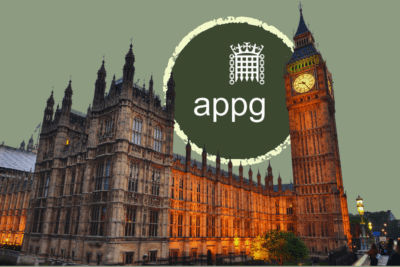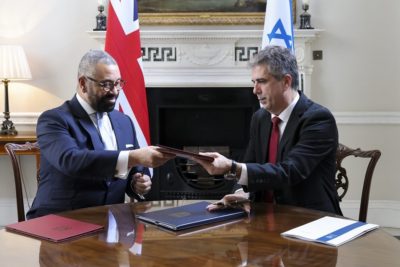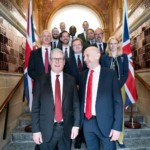The British Legion wants us to ‘Rethink Remembrance’ but they are not the only ones
ForcesWatch comment
It may be a surprising message on the face of it, but the Royal British Legion is asking the public to ‘Rethink Remembrance’.
That does not, however, suggest we will see the Legion advocating growth in peace studies, or calling for more debate around how the military operates in public life and beyond.
Instead, via their ‘Rethink Remembrance’ Poppy Appeal, the Legion is asking us to focus not only on the dead and the veterans of two world wars but also those of today’s generation.
In terms of the Legion as a welfare charity, this is uncontroversial. What is more unsettling is how the British Legion seeks to define public remembrance, determining who it is for and how we should engage with it.
Come and see our wonderful #rethinkremembrance video installtion @p_sq by @StPaulsLondon. #poppyappeal pic.twitter.com/N274ON8oH9
— Royal British Legion (@PoppyLegion) October 27, 2016
Furthermore, the militaristic dimension of remembrance is problematic for many; this has been nurtured by policies and public relations that promote support for the military in the aftermath of the controversial wars in Iraq and Afghanistan.
As a consequence, the level of debate over recent years about ‘poppy politics’ has grown significantly, reaching fever-pitch in some quarters; the nature of public remembrance changed long before we were asked to ‘rethink’ it.
Where once poppies were worn only on Remembrance Sunday, there is now something of a ‘poppy season’ from late October, accompanied by a full-scale advertising and fundraising campaign.
Remembrance is no longer a shared moment of private reflection. It is now characterised by corporate logic and exceptionalism. The former puts fundraising targets above ethics as it takes money from arms companies and allows them to use the poppy appeal to buy legitimacy; the latter sees the charity treated as different from others as they fundraise on public transport, in schools and elsewhere.
Donations were warmly welcomed by @poppylegion collectors on board Circle line trains this morning for #LDNPoppyDay pic.twitter.com/xLVMkL99yh
— Transport for London (@TfL) November 3, 2016
The British Legion may deny the political nature of the poppy and state that it can mean different things to different people, but most of us are able to see that the politics of ‘wear your poppy with pride’ is different to the politics of ‘reflect on the suffering caused by war’. Those whose history has been on the sharp end of British warring will know that better than most.
While the British Legion, with its too-close links to the military and arms industry, is the ‘national custodian’ of the poppy, any official ‘rethinking’ of remembrance will remain neutered. The series of short films for this year’s Poppy Appeal highlight the point.
Words are spoken by WWII veterans, but the twist is that the stories are those of recent combatants who have suffered trauma, both mental and physical. While these are important and moving accounts, they make no reference to learning from the mistakes of the past, to the realities of violence both for military personnel and civilians, nor to the importance of peace-building and peace education.
An official ‘rethink’ of remembrance is not able to accommodate fundamental questions about the validity of military approaches or the poppy appeal’s sub-texts around Britishness, national pride and support for the military.
Plainly put, Remembrance these days, dominated by fundraising as the state outsources its obligations to veterans, helps to generate widespread public consent for current conflicts and those yet to come, and for the institutions of the military. Why else would it seem acceptable that the armed forces take part in the poppy appeal with military displays and recruitment activities?
Royal Marines Commando doing an unarmed combat display @LondonWaterloo for #LDNPoppyDay. #PoppyAppeal pic.twitter.com/LrKG4stced
— Royal British Legion (@PoppyLegion) November 3, 2016
As a political symbol it is not surprising that there is a ‘battle of the narrative’ around the poppy; a jostling to impose meaning, to define the central actors. This public relations drive may be somewhat counter-productive. This year has seen a surge in sales of the white poppy, whose very existence suggests that there is more than one approach to remembering. Some also wear the black poppy, to remember black soldiers and more recently for those who have objected to war.
Wider debate and policy-making around the armed forces in recent years has also conflated concern for individual service personnel with support for the military as an institution. As a result military interests have increasingly been woven into the fabric of civic life in what can be summed up as a ‘new tide of militarism’. How else to generate support for future wars and create future soldiers?
Much of this institutionalising of support for the armed forces is coming via the classroom.
Expanding the cadets and ‘military ethos’ into education, allowing armed forces recruiting activities in schools and encouraging sponsorship of the military and arms industry are Department for Education policies, with significant funding behind them.
Referring to the ill-fated Troops to Teachers scheme, the NUT has pointed out that, ‘It is not the previous occupation of a teacher that matters but the training they receive’. Yet the government remains absorbed by the idea that the military can solve complex social problems. That military ambition may rub off on some pupils is a useful by-product.
Using a more evidence-based approach, the United Nations Committee on the Rights of the Child has recently criticised the UK again for recruiting children under-18 into the armed forces, something that few countries around the world still do. Others who put the welfare and rights of young people above defence needs, such as the Children’s Commissioners, also demand the need for change.
The UN recognises that much of the military messaging in schools is biased and about promoting recruitment; they have stated that ‘military recruiters access to schools be strictly limited’.
The distinction between educating about conflict and promoting the armed forces is also not always clear in schools at remembrance time. Every school receives resources from the British Legion; while these have a reasonable depth to them, they have a narrow focus on the British and allied experience, and do not explore alternatives to the conflicts that have caused this immeasurable suffering.
Our #rethinkremembrance resource for educators – critical thinking about what and how we remember https://t.co/g69R5pDy2a
— ForcesWatch (@ForcesWatch) November 10, 2016
Many schools also sell poppies to pupils. Some seem to be echoing the approach taken by ‘poppy vigilantes’ who berate those in the public eye for choosing not to wear a red poppy, or even wearing it in the wrong way. In recent days there has been a lively thread on Mumsnet about the role of poppies in schools, after one parent raised concerns when her daughter was told to wear one or face ‘isolation’.
Important reading to #rethinkremembrance especially in schools which insist on pupils wearing the poppy. See https://t.co/OUf3gSY7Up https://t.co/oqN9b6Vqor
— ForcesWatch (@ForcesWatch) November 10, 2016
In remembrance and in civil-military relations we do need to think clearly about the difference between commemorating suffering on the one hand, and celebrating military institutions, and war itself, on the other. We need to encourage understanding that critical thinking about the causes and consequences of war in no way dishonours or disrespects those who have died as a result of military conflict.
So, lets take up the ‘rethink remembrance’ baton, unravel the complex messages that public remembrance carries as it is packaged and presented to us, and think seriously about the realities of war and its root causes, and help to shape the vital act of remembering.
#whitepoppies laid near Euston Road this morning by @britishquakers in memory of everyone who died in all wars pic.twitter.com/9yRyQH1MyE
— Juliet Prager (@DRCQuaker) November 11, 2016
See more: military in society, remembrance,
Like what you read?
> Sign up for our newsletter or blog notifications
> Support our work – from just £2 a month










